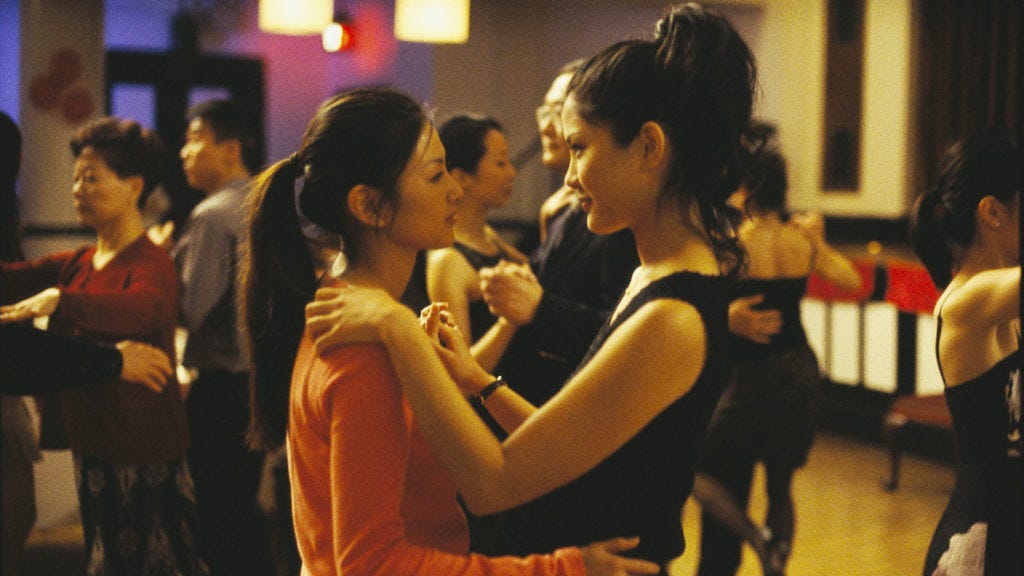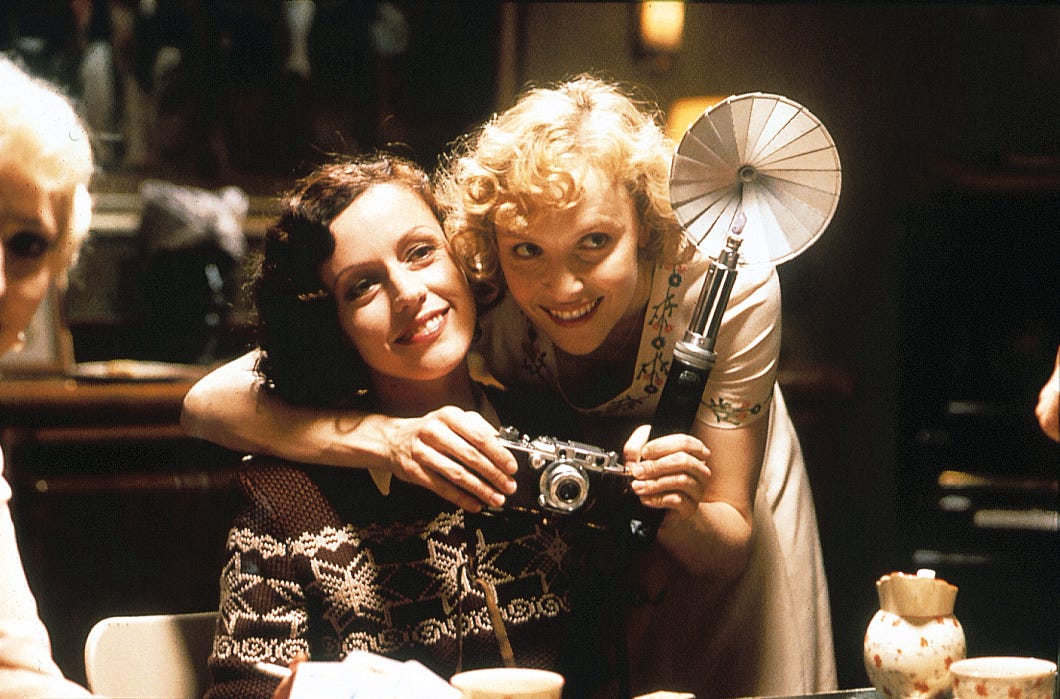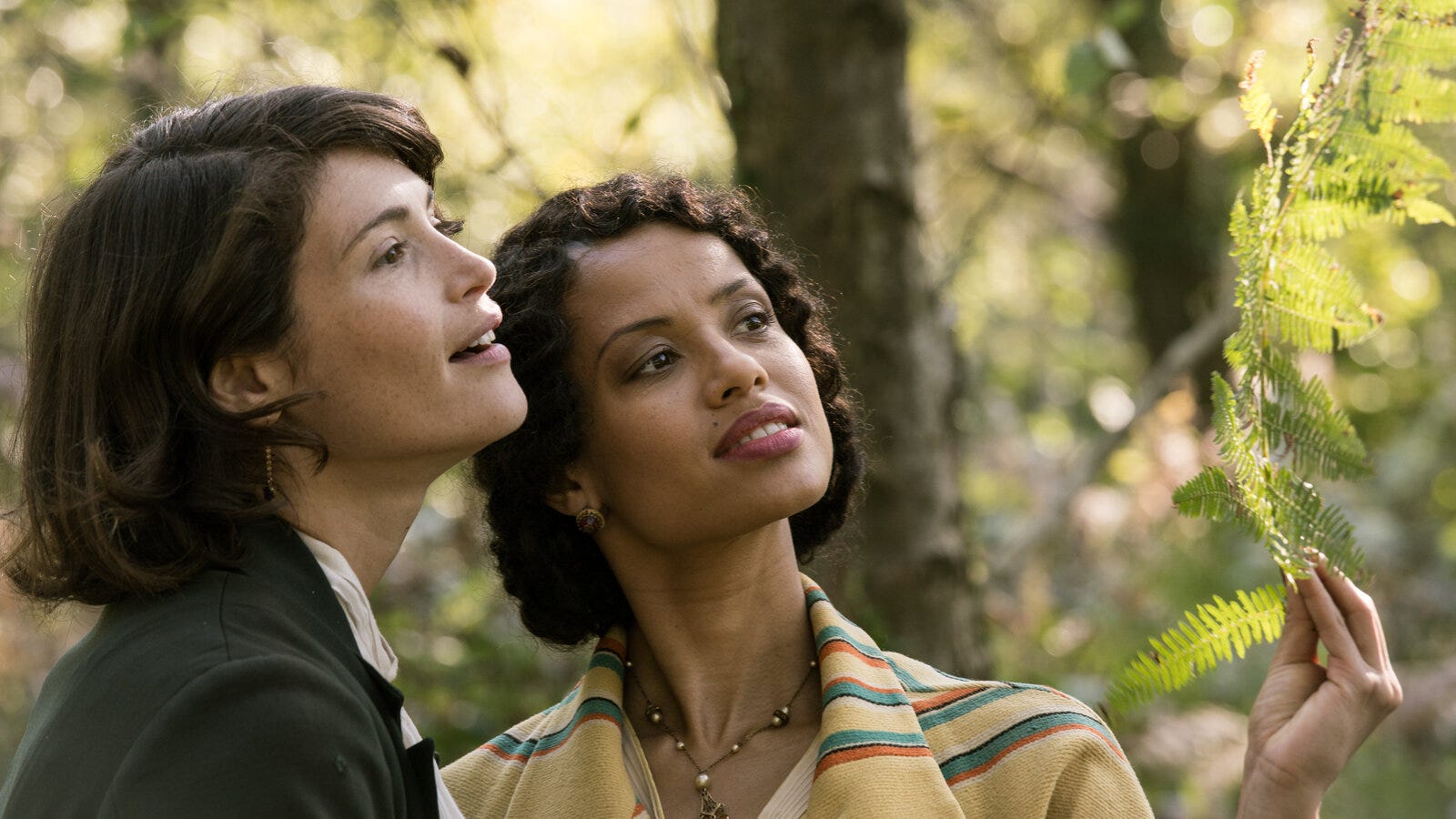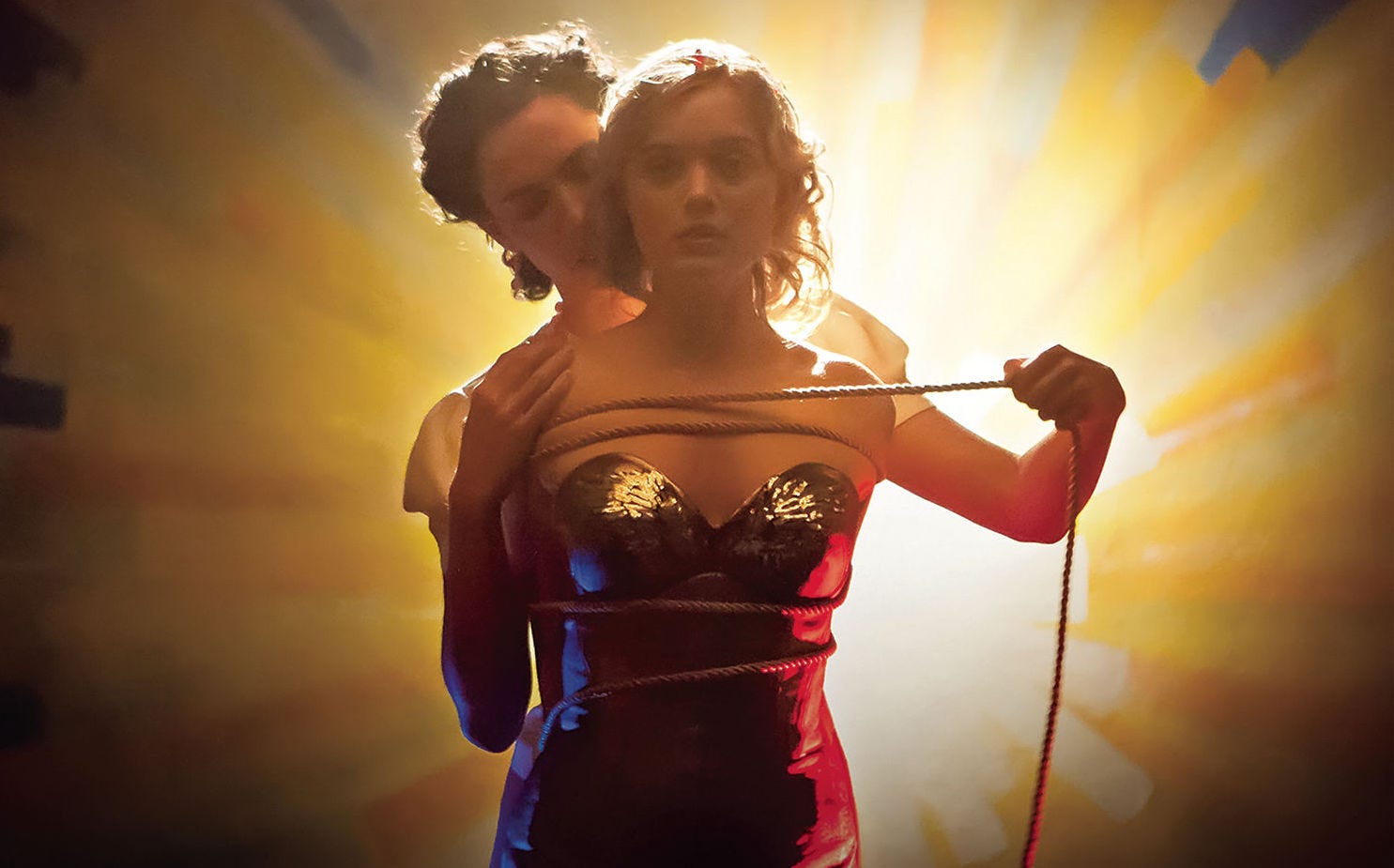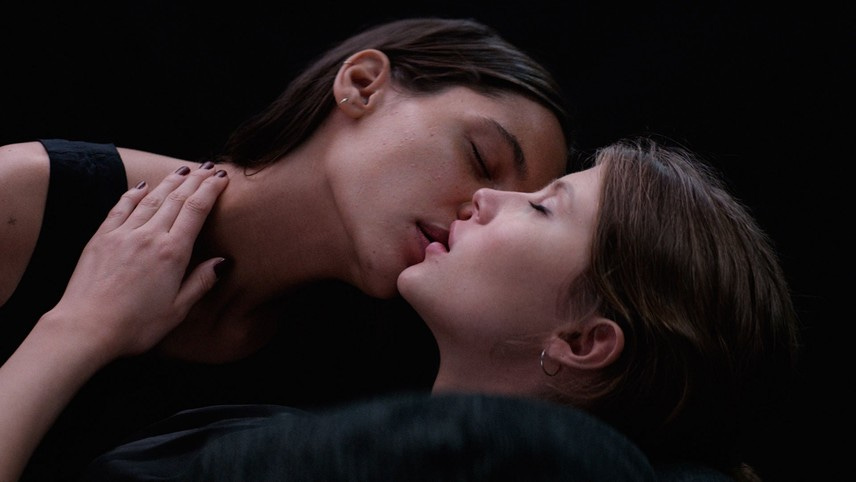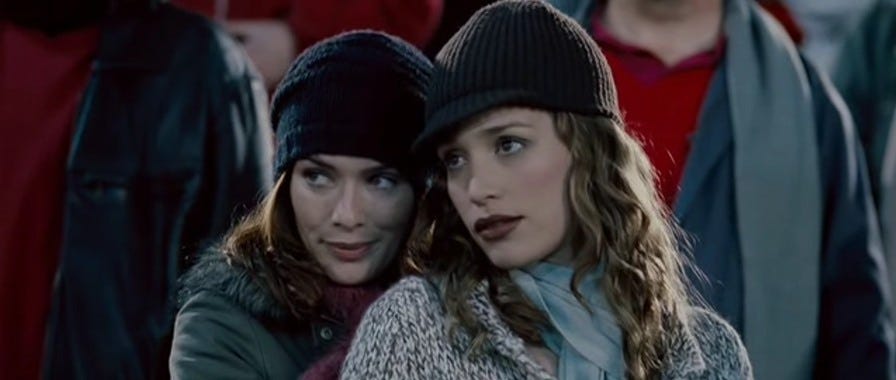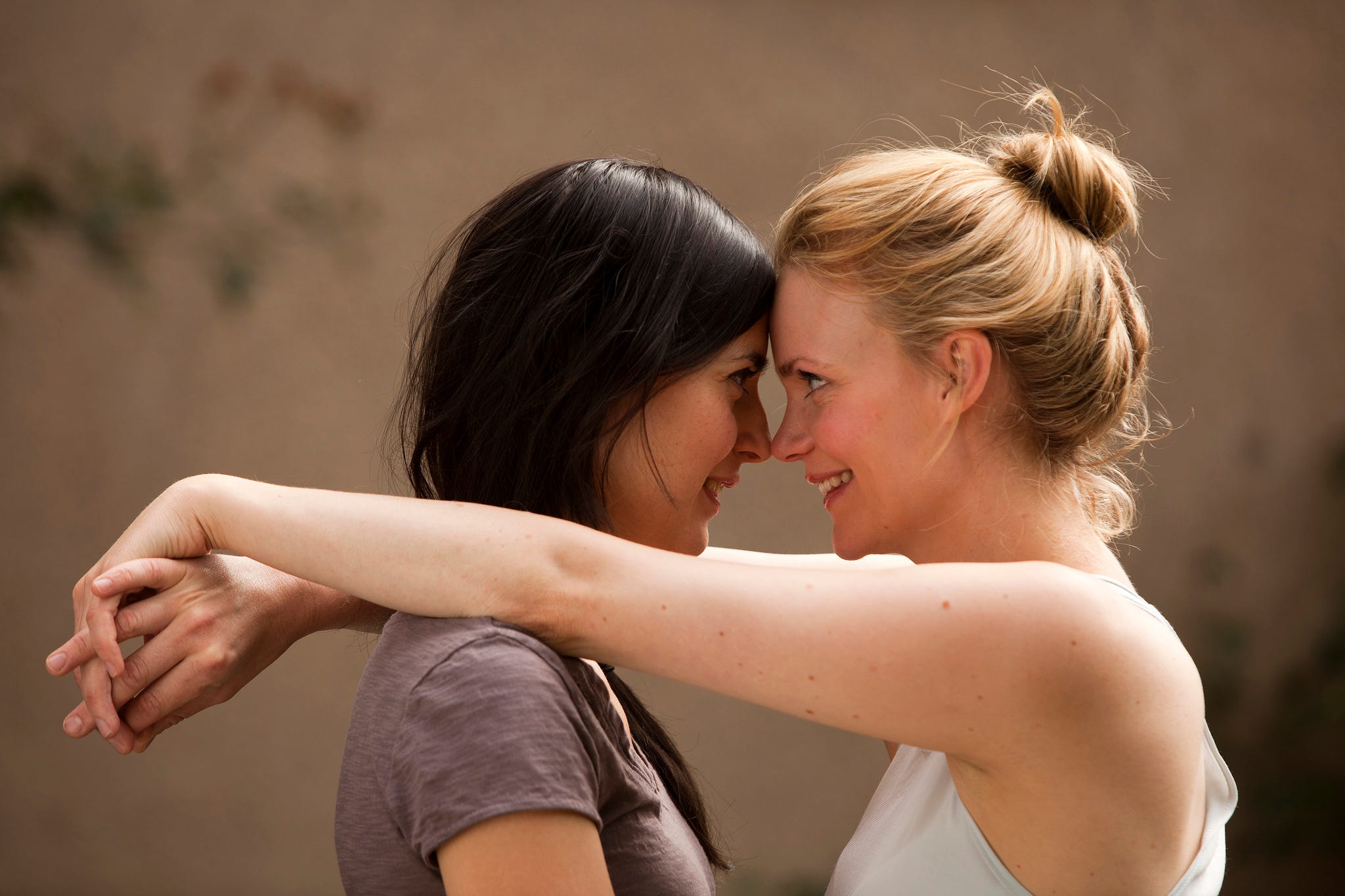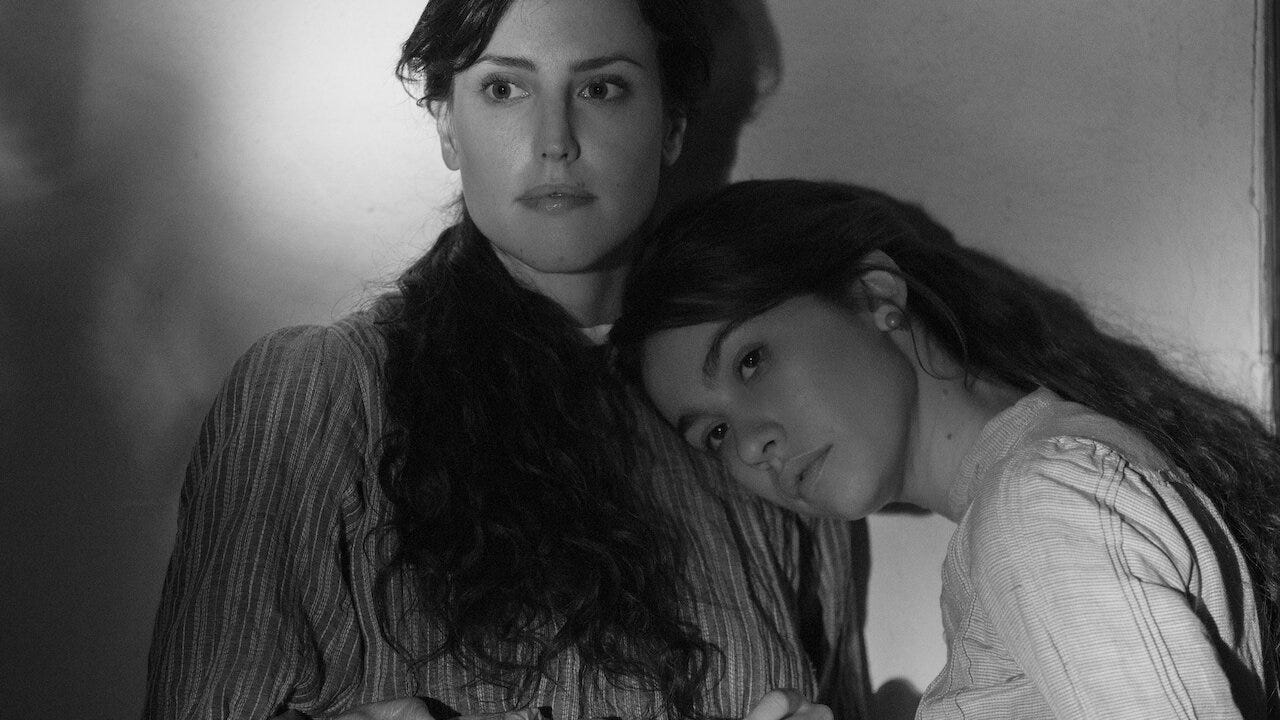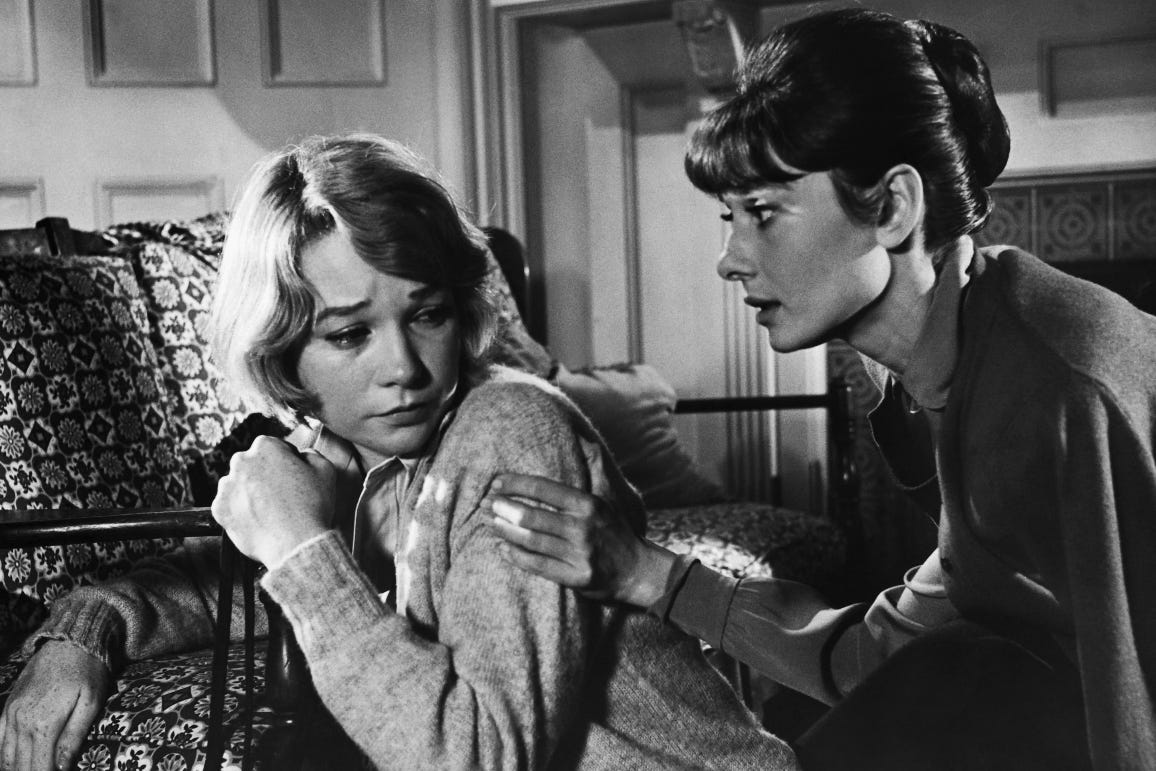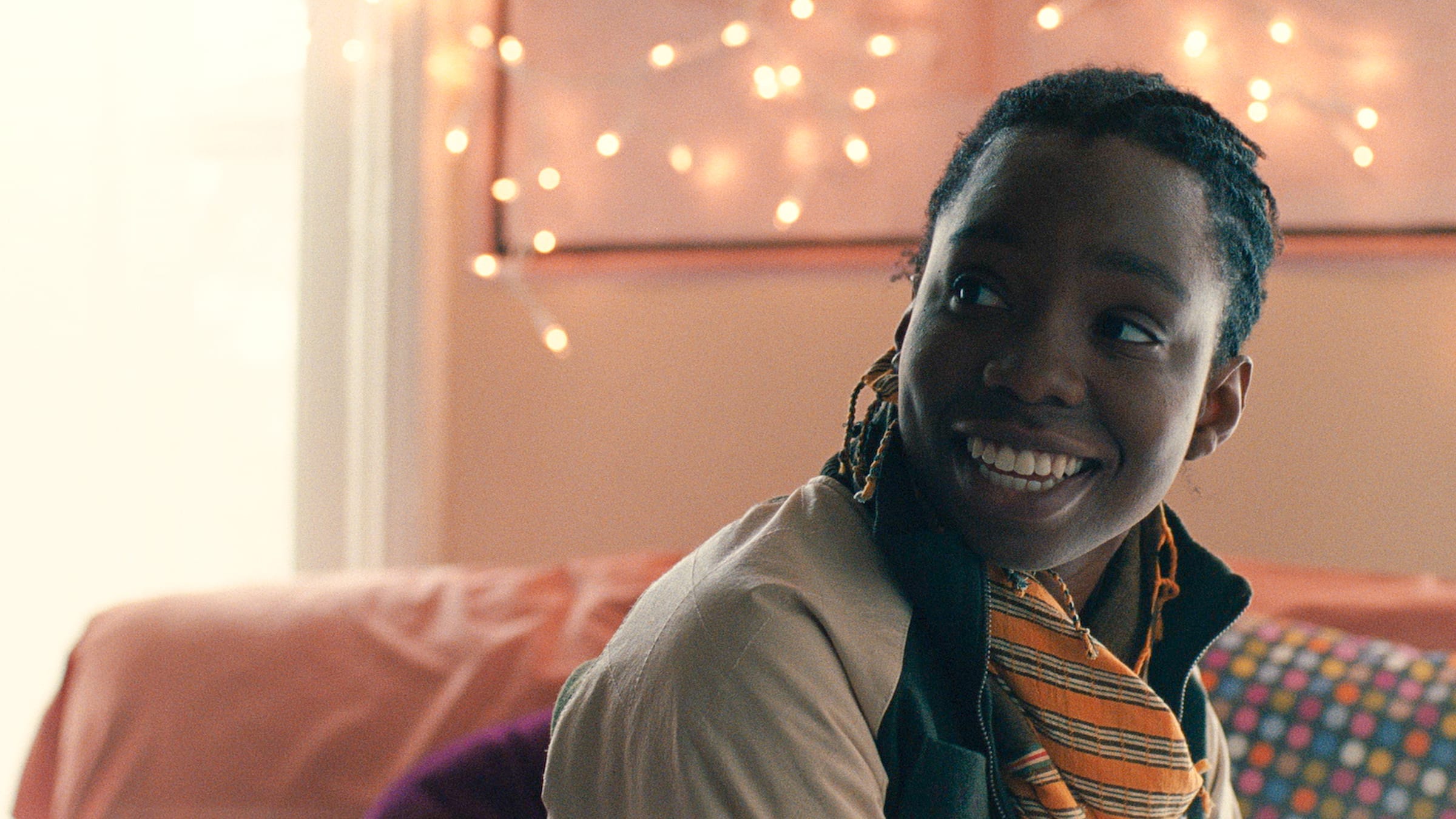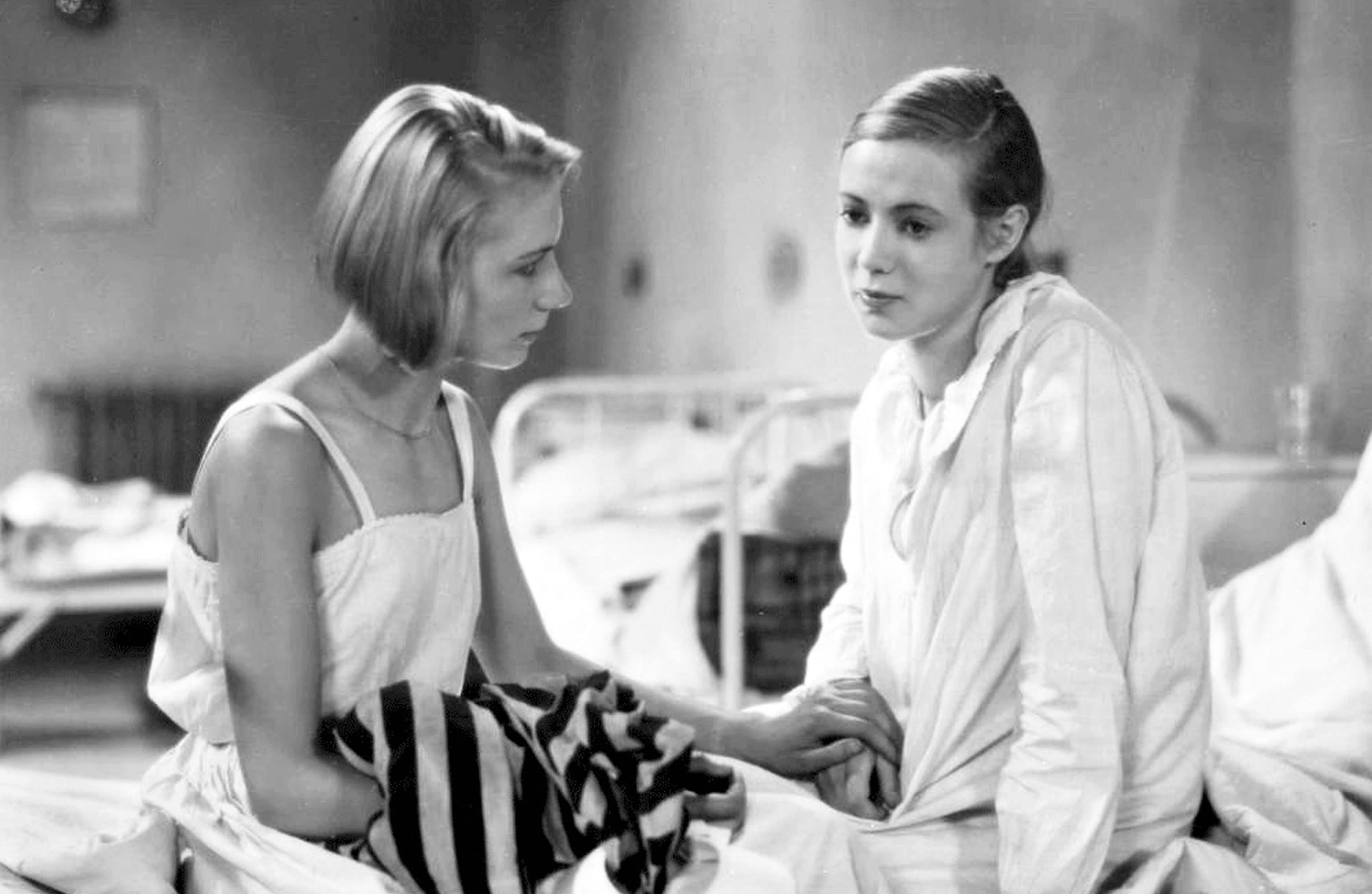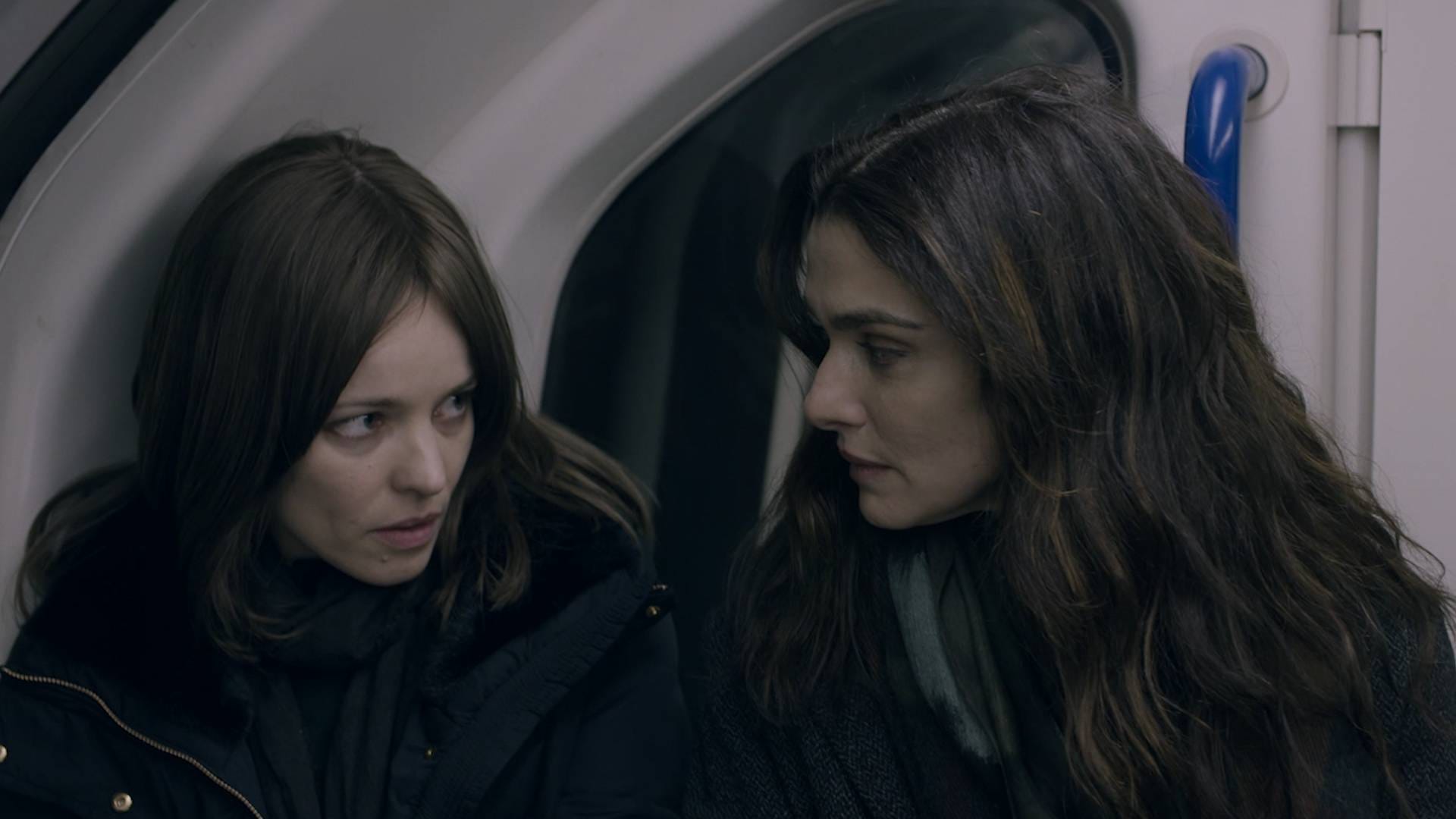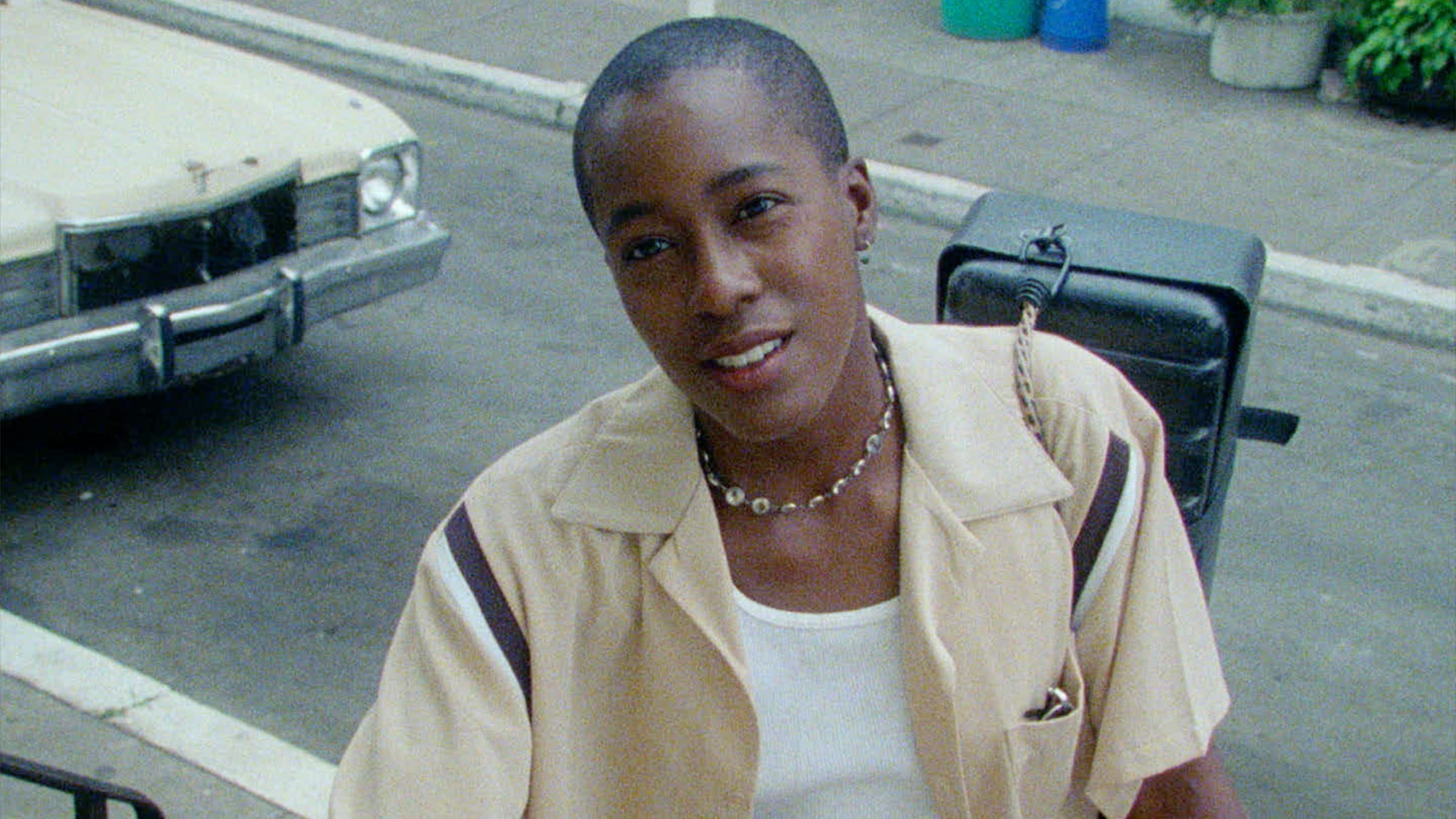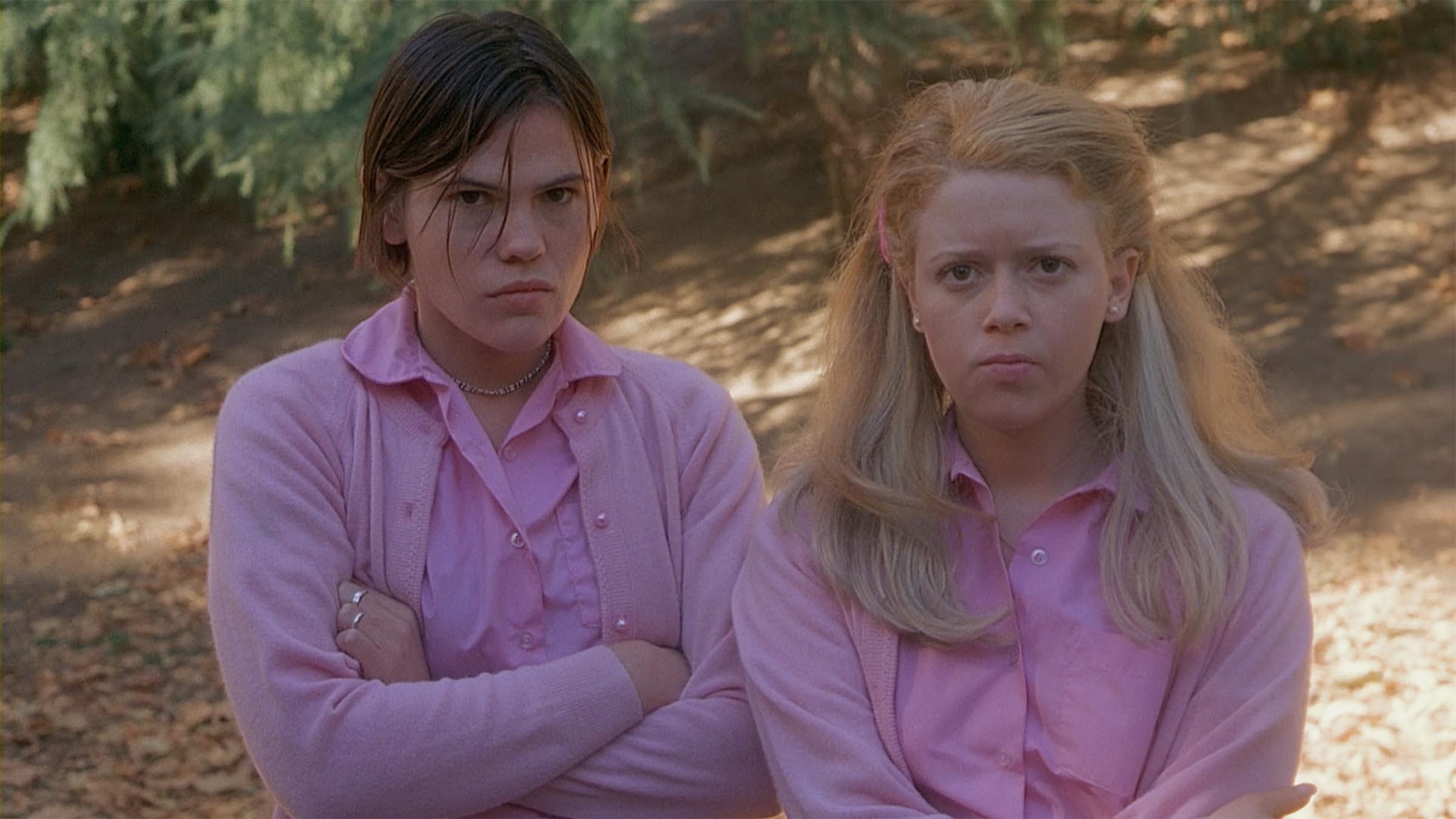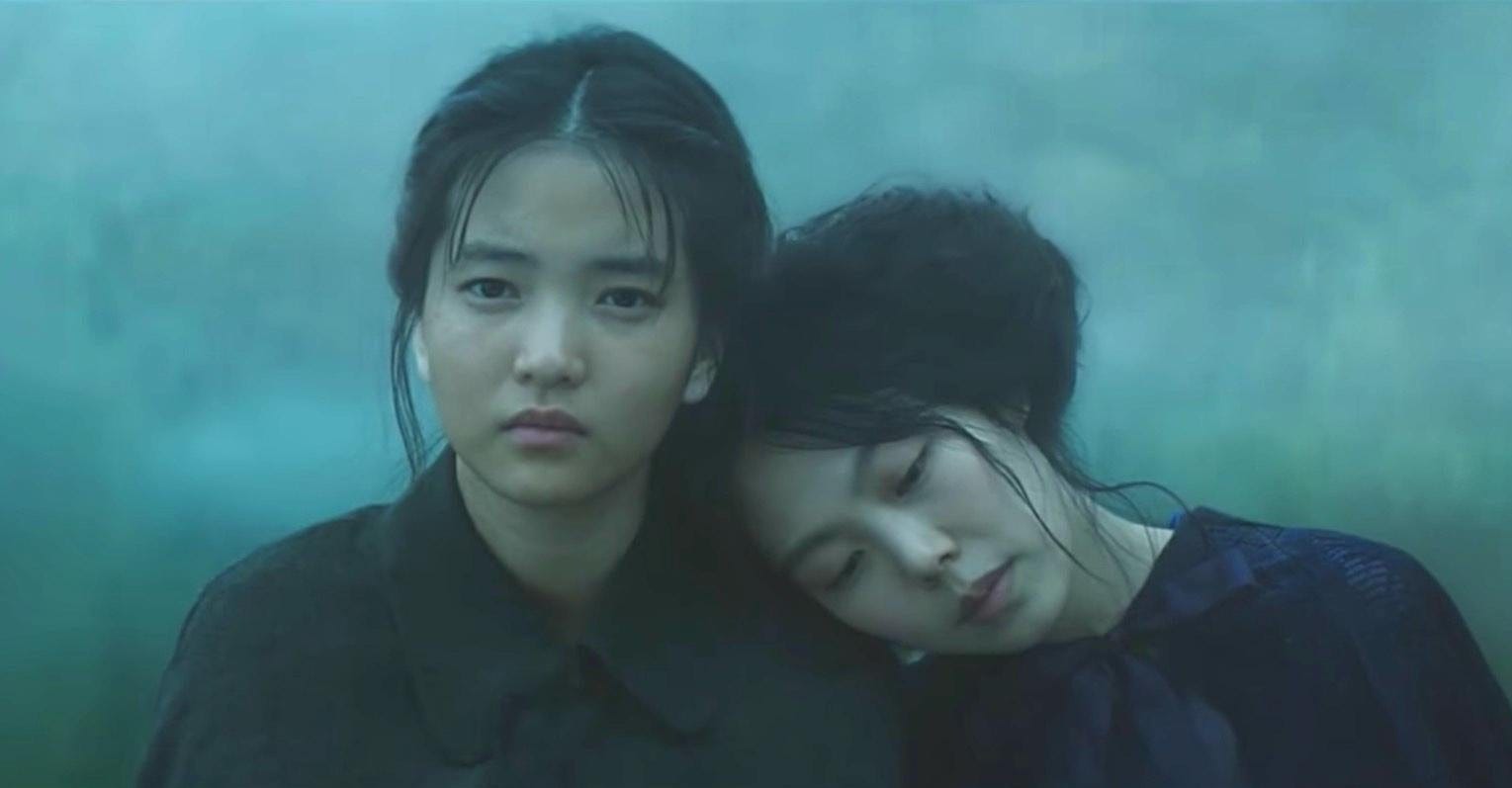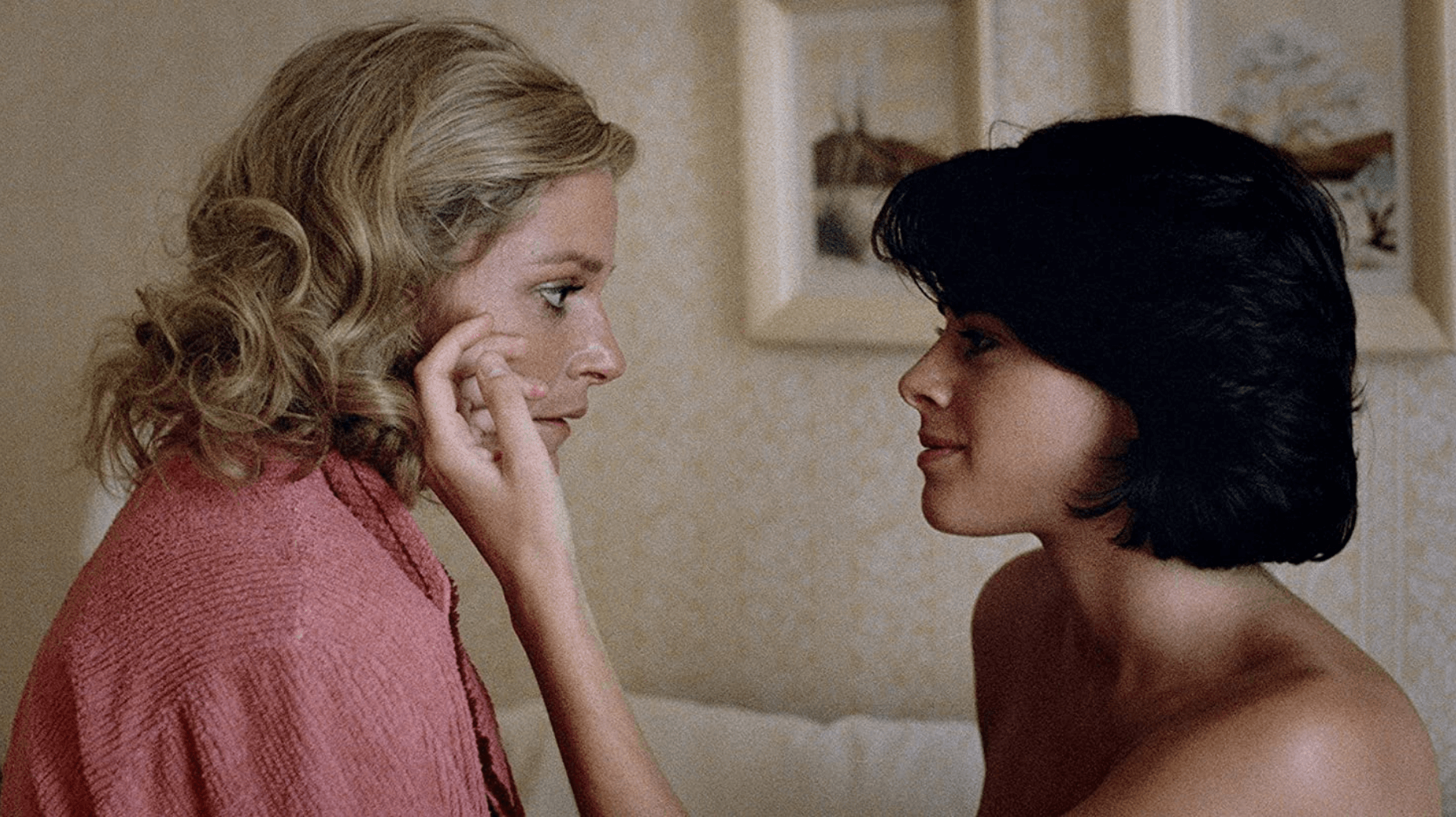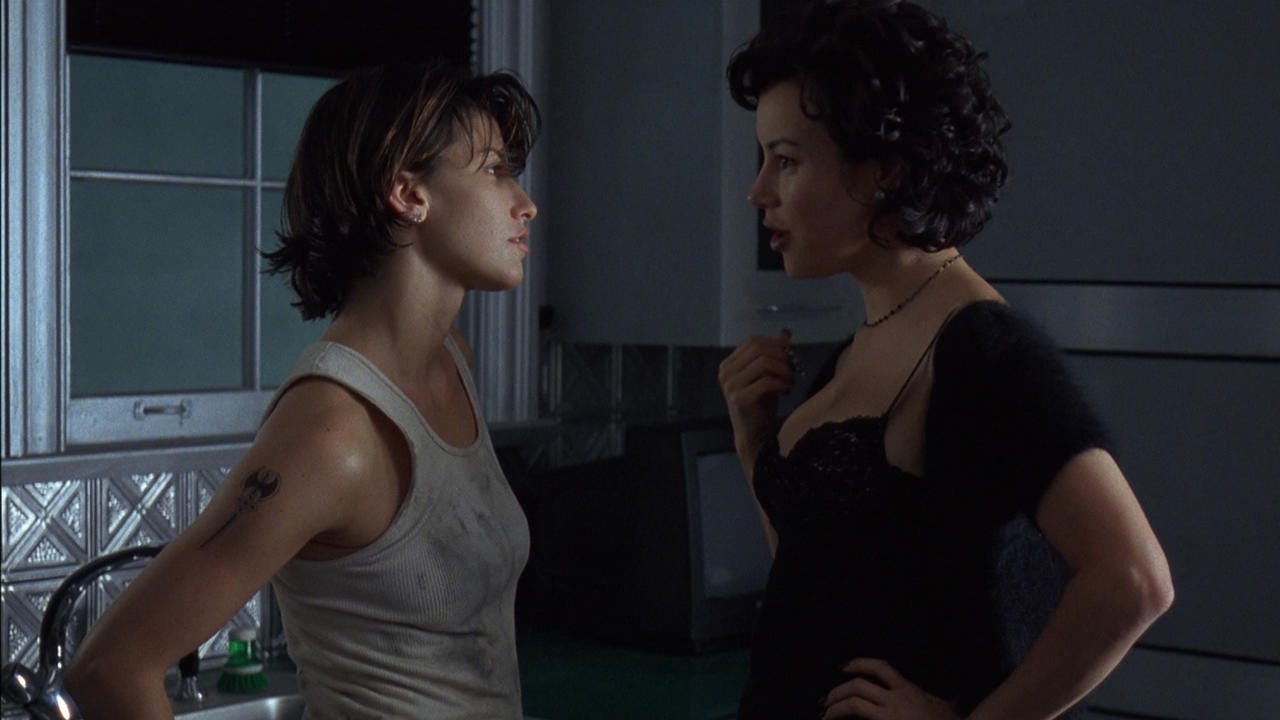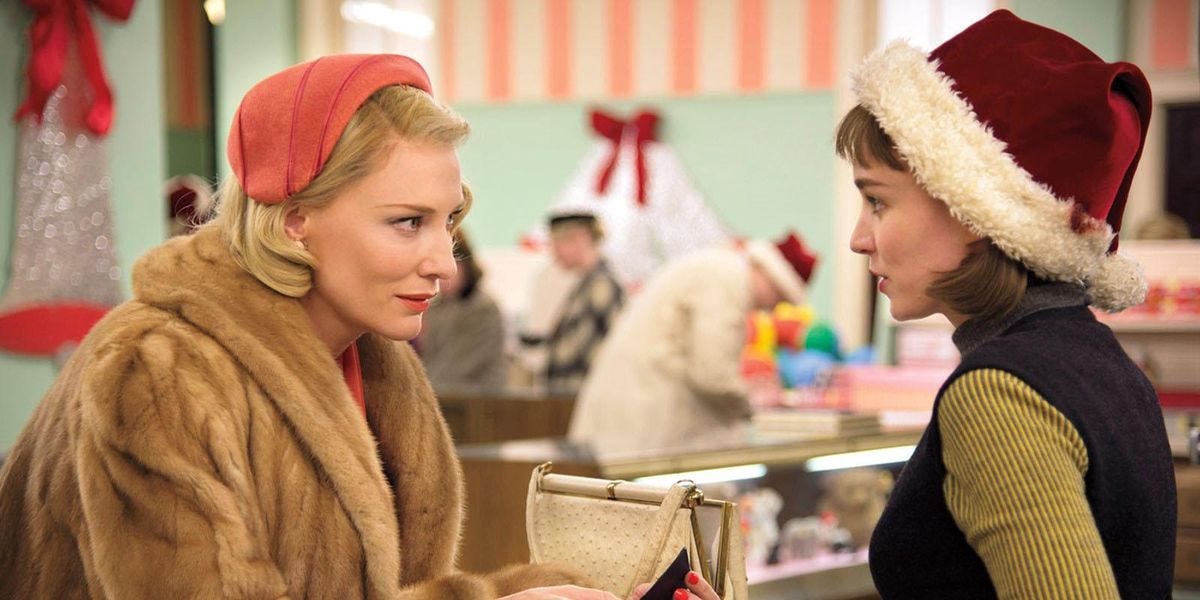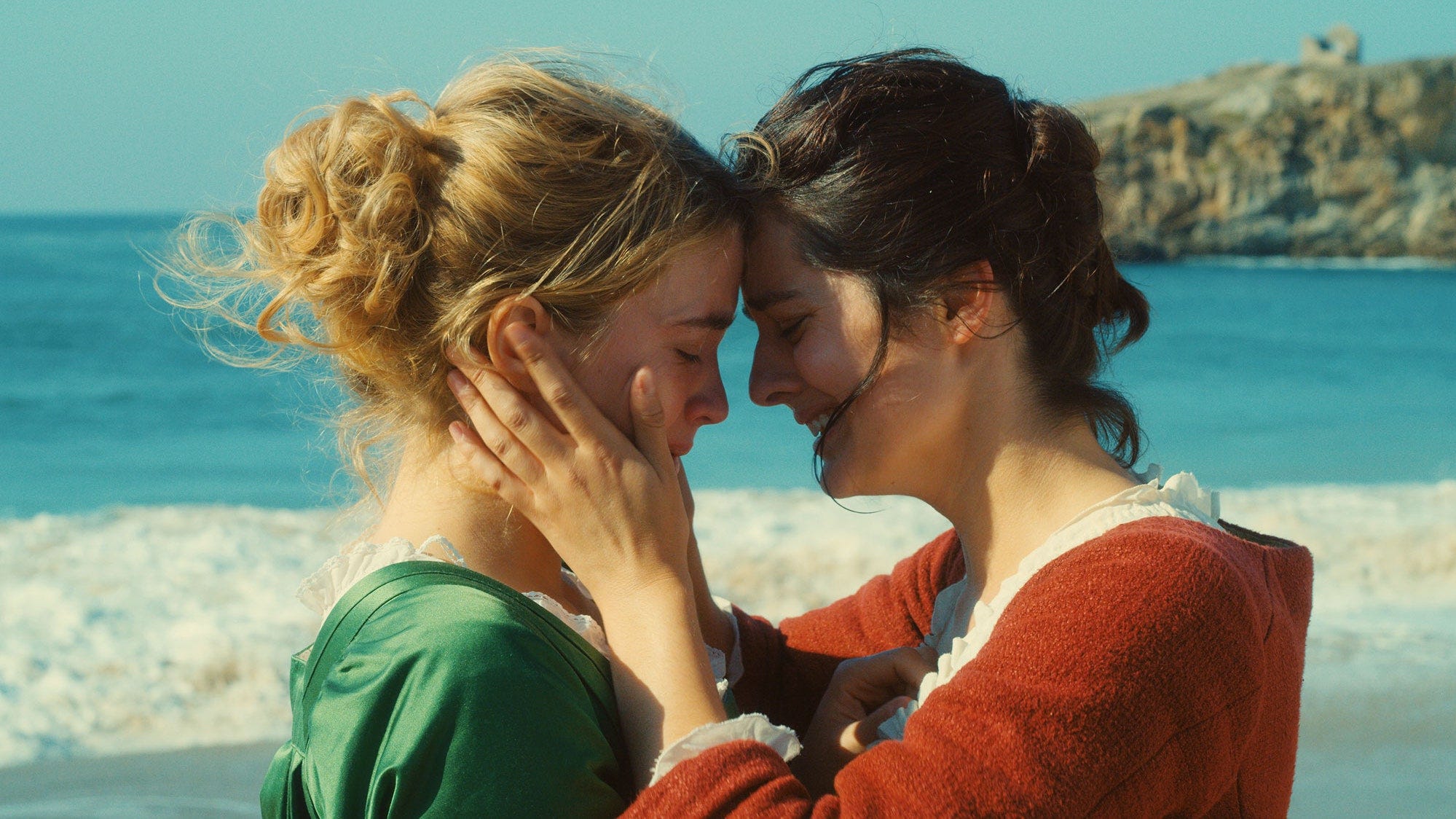The 20 Greatest Lesbian Films of All Time
This is the Sunday Edition of Paging Dr. Lesbian. If you like this type of thing, subscribe, and share it with your friends. Upgrade your subscription for more, including weekly dispatches from the lesbian internet and monthly playlists. I still have my Pride Month sale going on! This post is too long for email, so read it on-site or in the app. P.S. – I won’t be publishing a Sunday Edition next week because I’m out of town, but paid subscribers will still get their dispatch. What makes a lesbian film a lesbian film? To be honest, I don’t really have a good answer for you. But in the case of this list – which is both inherently incomplete and limiting – I’ll try to come up with some working criteria. What I’ve compiled here is a roundup of films that feature an explicitly (in words and/or actions) lesbian or sapphic protagonist(s) and also include a prominent lesbian romantic storyline (whether consummated or not). Obviously, romance is not the end-all-be-all of queer stories, but this tends to be a common denominator amongst works like these. While I concede that ranking works of art is often something of a fruitless project, I do think it can reveal things about how we qualify taste and merit. What separates a good film from a truly great one? What matters more: how artfully a film is constructed or how it makes us feel? Are the qualities that make a good lesbian film different from the qualities that make a good film more generally? I won’t be answering all of these questions in great detail, though I hope you might ponder them as you read along. It goes without saying that this list is the result of my own baises and I certainly don’t speak for everyone, but I invite you to join me on this journey through the halls of lesbian cinema.
The 1990s was a prolific decade for independent filmmaking in the U.S., and this cinematic environment resulted in a movement known as New Queer Cinema. One of the best lesbian additions to this movement is Go Fish, the 1994 film directed by Rose Troche. Troche wrote the film with her girlfriend at the time, Guinevere Turner, who stars in the movie (and also co-wrote American Psycho, by the way). Turner plays Max, a young lesbian looking for love. She meets Ely (V.S. Brodie), and they hit it off despite having little in common. The best thing about Go Fish is the sense of realism it strives to embody. Much of the film consists of lesbians discussing various aspects of lesbian identity and culture, having conversations that the actors and writers must have had on their own time. Though lesbian culture has changed significantly in the last 30 years, many of the touchstones are familiar – lesbians cutting their nails on a first date, close-ups of women in Doc Martens. It’s both an illuminating time capsule and and entertaining piece of lesbian storytelling.
Contemporary audiences may be most familiar with writer/director Alice Wu from the 2020 Netflix movie The Half of It, but her 2004 project Saving Face is the superior film. Michelle Krusiec plays Wil, a young surgeon and a closeted lesbian. Wil meets Vivian (Lynn Chen), an out lesbian who is pursuing modern dance against her father’s wishes. Wil’s burgeoning relationship with Vivian is complicated when Wil’s mother, Hwei-lan (the incredible Joan Chen), reveals she is pregnant and moves in with Wil. Wil is uncomfortable being out in public with Vivian, and Vivian struggles to accept Wil’s many hang-ups about dating women. A rare lesbian rom-com, Saving Face tackles cultural and generational differences with humor and heart. The film doesn’t purport to define the experience of all Chinese lesbians, but it does tell a story that is still sadly undertold. Wil is a lovably awkward character, and her struggle to be fully vulnerable is an achingly relatable one. It’s wholesome without being cloying, and laugh-out-loud funny to boot. If you’ve ever fallen to the floor in anxiety when a girl tried to kiss you, this one’s for you.
Aimee & Jaguar is one of those lesbian films that sounds like a tragic tearjerker on the page. And sure, it might make you cry, but it has a lot to say about lesbian joy and survival despite some heartbreaking circumstances. The film is based on the real-life love story of two women who meet in 1943 Berlin. Felice Schragenheim (Maria Schrader) is a Jewish woman who works for the underground resistance. She meets Lilly Wust (Juliane Köhler), a mother and the wife of a Nazi officer. Their love affair has a transcendent effect on them both, but the dangers it poses are not equally distributed between them. As you might imagine, this one does not have a happy ending, but much of the film’s runtime is spent highlighting the happiness these two women were able to carve out, if only for a short while. Schrader and Köhler both give wonderful performances – one a stubborn rebel, the other a woman coming undone – that elevate the already astonishing source material. It’s devastating precisely because their love for one another feels so true.
Summerland is another WWII lesbian movie, but this time with a twist: it actually has a happy ending. Gemma Arterton plays Alice Lamb, a curmudgeonly lesbian who lives in a house on a cliff, writing academic theses about folklore and shooing the neighborhood kids away. Her hermit-like existence is interrupted by the arrival of a young boy named Frank (Lucas Bond), an evacuee from London. Frank’s presence in her life reminds Alice that she wasn't always this alone. She once had a life-altering love affair with a dazzling woman named Vera (Gugu Mbatha-Raw), and the end of their relationship has been haunting her ever since. Frank slowly brings Alice back to life, and she is no longer able to keep her memories of Vera at bay. I will not spoil the ending here, but suffice it to say it is a sappy delight. If you’re one of those people wondering where all the sugary-sweet lesbian movies are, Summerland is the answer to your prayers.
Yes, Professor Marston and the Wonder Women does have a man at its center, but he is so often eclipsed by the women around him that he simply fades into the background. Directed by Angela Robinson (the filmmaker behind both Herbie Fully Loaded and D.E.B.S.), the movie tells the story of Dr. William Moultan Marston (Luke Evans) the creator of Wonder Woman and the (co)inventor of the lie detector. Marston was married to a brilliant woman named Elizabeth Holloway (Rebecca Hall) who would have been just as acclaimed as he were she not a woman in the 1930s. William and Elizabeth meet a young student named Olive Byrne (Bella Heathcote), and, get this, they both fall in love with her. What follows is a polyamorous, BDSM-tinged relationship that leads to the formation of a unique family structure and the creation of Wonder Woman (hence all the bondage). The film is heartfelt, horny, and also a fascinating origin story of one of the greatest characters of all time. Hall is one of our best living actors (in addition to being a talented director), so it’s no surprise she excels at playing a bitchy academic with a soft spot for a sweet young thing. The conclusion of the film indicates that Elizabeth and Olive’s love story is the real heart and soul of the narrative, which of course we knew all along.
Thelma is kind of like a lesbian superhero movie but without all the big-budget IP nonsense. Thelma (Eili Harboe) is a sheltered young woman who moves to Oslo for university. While there, she starts to experience seizures of unknown origin. At the same time, she begins to develop feelings for a fellow student, Anya (Okay Kaya). Thelma learns that she possesses powerful telekinetic abilities that are tied to her emotions. Her feelings for Anya manifest themselves in these otherworldly powers, which she must learn to control before people start getting hurt. Thelma’s coming-of-age story is a unique one. In order to learn more about who she is, she is forced to re-live her past, a past composed of haunting memories. As the tensions between family, love, and selfhood come to a head, Thelma has to decide who she wants to be in the world. The film is visually sparse but shot beautifully, as Thelma’s inner world appears in cool grays and liquid blacks. The narratives of identity and empowerment are deftly handled, and just like our protagonist, it has a sort of quiet, humming power.
There are only a handful of lesbian rom-coms out there, and even fewer that have been widely distributed. One of the films on this very short list is Imagine Me & You, the 2005 directorial debut of Mamma Mia! Here We Go Again filmmaker Ol Parker. The film takes a classic rom-com formula and turns it on its head, and by that I mean it adds lesbians to the mix. Rachel (Piper Perabo, sporting a barely-there British accent) is getting married to Heck (Matthew Goode, playing an almost unbelievably nice straight man). Things are going well until Rachel locks eyes with the florist, Luce (Lena Heady), as she’s walking down the aisle. And that’s it! Love at first sight! Heck is done for. That’s not exactly true – Rachel really does try to settle into newlywed bliss, but it’s just not happening now that she’s fallen in lesbian love. There is nothing especially unique about this film apart from the fact that it features lesbians, but Perabo and Heady are so utterly charming in the lead roles that it’s hard not to fall for them. The film is also quite funny – “You’re a wanker, number 9! And “Am I gay? I’m ecstatic” are inked into the lesbian history books – and it’s ultimately a cheerful, breezy time. Imagine Me & You would be as bland as white bread were it not about lesbians, which just goes to show you that lesbians make everything better.
Alexandra-Therese Keining’s Kiss Me is a Swedish lesbian film filled with beautiful cinematography and a whole lot of longing. Mia (Ruth Vega Fernandez) and Frida (Liv Mjönes) come together under unusual circumstances: their parents are getting married. When they meet at the engagement party, there is an immediate spark between them. The fact that they are about to become step-siblings notwithstanding, their relationship is hindered by the fact that Mia has a very boring fiancé named Tim. I will tell you now that the film does have a happy ending, but along the way, there is an appealing amount of angst. The two women enjoy the Swedish countryside, take an intimate swim, have an awe-inspiring encounter with some deer, and make love while “Heartbeats” by José González plays. There is even a running-through-the-airport scene that takes the film into epic romance territory. It’s generally quite an understated film, but these flashes of spectacle amp up the tension to a pleasurable degree.
Like Aimee & Jaguar, (there are so many lesbian films titled like this), Elisa & Marcela is a period piece based on an amazing true story. The movie tells the tale of the first recorded same-sex marriage in Spain, which took place in 1901. In the late 1800s, Elisa (Natalia de Molina) and Marcela (Greta Fernández) meet while attending a Catholic school. Marcela is sent away by her father but the two women remain close. Several years later, they are living together and working as teachers in Galicia. When the villagers become suspicious and they are met with violence, Elisa leaves and returns as a man, posing as her cousin, Mario. Elisa and Marcela go through plenty of strife in order to be together, but their story is beautifully told. As is the case with most lesbian period pieces, there is a constant struggle between the two women and the norms of the society in which they live, but they refuse to give up hope. The result is a film that emphasizes the importance of safeguarding joy and self-definition in any way you can. Despite its often serious tone, there is also plenty of time for sensuality – let’s just say you may never look at an octopus the same way again.
The Children’s Hour is one of the first American films to feature an explicitly lesbian character, and it deserves consideration for that fact alone. But statistical anomalies aside, the film is an empathetic, moving portrayal of lesbian subjectivity that finds a way to subvert the inherent conservatism of the Hays Code. Shirley MacLaine and Audrey Hepburn play Martha and Karen, two friends who open a boarding school. When a mean-spirited student, Mary (Karen Balkin), is punished for telling a lie, she spreads another one. She starts a rumor that Martha and Karen are in a lesbian relationship and forces another student to corroborate her story. The rumor affects the entire school, as parents begin withdrawing their children and the two women launch a libel suit. It does not end well for Martha, who we learn is actually a lesbian and has been harboring feelings for Mary for years. In fact, it ends quite brutally. But while society condemns Martha, the film itself does not. Martha is given the space to define her own feelings and occupies the position of the tragic heroine who the audience ultimately sympathizes with. Karen proves herself to be a stalwart ally to her friend, and the somber ending is undermined by the suggestion that Karen loves and supports Martha no matter what. Though contemporary audiences might be tempted to turn away from a film that depicts so much lesbian pain and self-loathing, that would be a mistake. You can feel the influence of studio censorship in every frame, and yet – a lesbian subject with her own desires and fears takes center stage.
One of only a few feature films to center on a black lesbian, Pariah is as important as it is moving. Directed by Dee Rees, the filmmaker behind the Queen Latifah-led Bessie biopic, the film tells an intimate coming-of-age story. Alike (Adepero Oduye) is a 17-year-old girl who lives in Brooklyn with her religious, socially conservative parents. Alike knows she is a lesbian and endeavors to explore her identity outside of the house, but she fears how her parents will react if they ever find out. It becomes more difficult to balance these two sides of her life when she meets Bina (Aasha Davis, who I want to note was a full 36 years old when this film was released). As things escalate between Alike and Bina and Alike’s family, she is forced to choose if she will live the life that’s expected of her or walk a different path. Oduye is brilliant in the role of Alike, and it’s a thrill to see her evolve and come into herself right before our eyes. It’s a simple, lifelike story that Rees tells with heart and a rigorous attention to truth.
Mädchen in Uniform is one of the first feature films to clearly depict lesbians, and it’s such a blessing that we’re still able to watch it today. The film was directed by Leontine Sagan, a Jewish woman, and written by Christa Winsloe, who was openly bisexual. It premiered in November of 1931, just a year and a half before the Nazis came to power. Joseph Goebbels ordered all prints of the movies to be destroyed, and the only reason it still exists today is that copies were already circulating outside of Germany by this time. (Eleanor Roosevelt was a champion of the film in the U.S.) The film follows Manuela (Hertha Thiele), a 14-year-old girl who is sent to boarding school. Manuela immediately falls in love with her young teacher, Miss von Bernburg (Dorothea Wieck), who seems to have a hold on all of the girls at the school. The film is explicitly queer – it even includes a kiss on the lips – and the entire narrative is subversive. In addition to the queer story, it is also overtly anti-authoritarian, as the girls fight to stand up to their dictatorial headmistresses. It’s a miracle of a film, and its artistic merit should be celebrated as much as its historical importance.
2017 was a huge moment in lesbian cinematic history. It marked the (carnal) meeting of two great same-named actresses: the Rachels. In Sebastián Lelio’s Disobedience, Rachel Weisz plays Ronit, a photographer who returns to her London Orthodox Jewish community following her father’s death. She reunites with Esti (Rachel McAdams), her childhood friend and former lover who she hasn’t seen in many years. Though Esti is married to their mutual friend Dovid (Alessandro Nivola), Ronit and Esti are unable to deny the attraction between them, which hasn’t waned in the decades apart. Disobedience is probably best known for the famous spit scene during their first sexual encounter, and this is indeed a high point. But the entire film is filled with bracing moments of both desire and restraint, and the Rachels hold their chemistry taut. Though the film takes place within a community generally understood to be conservative, Disobedience posits that it is possible for pain, and joy, and change to coexist within these structures. Esti’s husband, who thankfully doesn’t fall into the well-worn lesbian movie trope of being a huge asshole, suggests that Judaism can and should be a space for liberation, though it is Esti and Ronit who must decide how this liberation takes shape.
Cheryl Dunye’s The Watermelon Woman is considered the first feature film to be directed by a black lesbian, and Dunye bakes the meaning of this representational fact into the narrative. The director plays Cheryl, a black lesbian who works at a video store in Philadelphia. Cheryl is working on a research project about black women actresses from the 1930s and 1940s. She happens upon an actress credited only as “The Watermelon Woman” and decides to make a documentary about her search to uncover the woman’s identity. The film also details Cheryl’s life as a lesbian in the ‘90s, including her struggle to find a girlfriend and her eventual relationship with Diana (Guinevere Turner, who also starred in Go Fish). Like Go Fish, the film is a fascinating snapshot of lesbian life in the 1990s. But what makes Dunye’s film so special is the overlap of fictional and metatextual elements, which allow Dunye to make an argument about the importance of black lesbian history while also telling an engaging narrative. Dunye’s significance within lesbian filmmaking cannot be overstated, and the film remains an incisive cultural intervention nearly thirty years later.
There are few satires as smart, funny, and joyful as But I’m a Cheerleader. Jamie Babbit’s feature film debut has a unique premise: it’s a comedy set at a conversion therapy camp. This is a tricky balance to pull off and a lesser filmmaker could have easily crashed and burned, but Babbit manages to poke fun at a truly horrendous practice without resorting to baseness or making light of these characters’ plight. Babbit also compiled one of the greatest casts of the 1990s, including Natasha Lyonne, Clea DuVall, Melanie Lynskey, Michelle Williams, RuPaul, and Julie Delpy in a wonderful cameo appearance. Lyonne plays Megan, a high school cheerleader. Megan’s parents think she’s a lesbian because of her vegetarianism and love for Melissa Etheridge – and the fact that she’s always staring at the other cheerleaders – so they send her to conversion therapy. Megan doesn’t agree with this assessment until she meets Graham (DuVall), a fellow patient who makes her heart go pitter-patter. A conversion therapy camp might seem like an odd place to ‘find yourself,’ but that’s exactly what happens to the characters in the film. They refuse to abide by the rules of the camp, instead finding love and acceptance among each other. It’s a hilarious, heartful film with a strikingly original style and vision that make it the best queer comedy ever made.
Park Chan-wook is a director best known for making violent, disturbing films, from his celebrated Vengeance trilogy to the supremely twisted Stoker. His 2016 film The Handmaiden isn’t necessarily a departure from this style, but it does contain something his other films don’t: lesbians. The Handmaiden is loosely based on the famous Sarah Waters novel Fingersmith, which was also made into a miniseries starring Sally Hawkins in 2005. Set in Japanese-occupied Korea in the 1930s, the film follows Sook-hee (Kim Tae-ri), an orphaned pickpocket hired by a conman to work for Japanese heiress Lady Hideko (Kim Min-hee) as her maid. Though Sook-hee’s directive is to swindle Lady Hideko out of her inheritance, the two women grow close and concoct a devious plan of their own. As the pair grow more in love and in lust, the plot thickens – literally, the film is split into three distinct parts – and the stakes get higher and higher. The Handmaiden is deeply erotic, mysterious, violent, and also unexpectedly sweet. If you haven’t seen this one before, you won’t be able to guess where it ends up, but suffice to say the lesbians get to have plenty of fun.
Like several of the films on this list, Desert Hearts is valuable in part because of its historical significance. Often considered the first mainstream American film to depict lesbians in a “positive” light, Donna Deitch’s feature film debut is more than just a . meaningful data point. It tells a story you might find familiar, but it does so with extraordinary beauty and grace. The wonderful Helen Shaver plays Vivian Bell, a professor at Columbia who travels to Reno to get a divorce in 1959. While staying at a ranch outside of town, Vivian meets the free-spirited Cay Rivers (Patricia Charbonneau), a young sculptor. You can probably guess what happens next. Cay helps the tightly wound Vivian loosen up a little bit, and in the process, they fall deeply in love. There is horse riding, long drives down desert roads, and some of the greatest lesbian Western outfits ever worn on screen. The cinematography is done by longtime Paul Thomas Anderson collaborator Robert Elswit, who composes each frame as if it were a landscape painting. Helen Shaver’s performance as Vivian is nothing short of magnificent. You can feel the way she is holding herself together, vibrating with self-restraint and an as-of-yet unexplored desire. Cay, on the other hand, is the ultimate lesbian cowgirl: passionate, defiant, and fiercely independent. Their colorful love story – painted in desert hues and the blush of neon lights – is a gift.
It is not an exaggeration to say that Bound is the sexiest lesbian film of all time. The first twenty or so minutes of the movie ooze with red-hot desire, but not just any desire – dyke desire. A remarkable feature debut from the Wachowski sisters, the film stars Jennifer Tilly as Violet, a sex worker and the girlfriend of a Chicago mobster, Caesar (Joe Pantoliano). Gina Gershon plays Corky, a plumber who has recently gotten out of prison. Violet is a savvy high femme seductress who understands what it takes to survive, while Corky has the kind of butch swagger that hits you right in the gut. First, there’s the sex. Violet seduces Corky using a flimsy plumbing excuse; Corky is happy to go along with it. A mattress on the floor, tangled limbs. Then, there’s the romance. Conversations about gender, what it means to be a lesbian, and what true freedom might look like. Later, there’s the caper. Caesar’s dealings with his mob bosses provide the perfect opportunity for the women to make themselves two million dollars richer, if they can only get out of town alive. The mashup of lesbian romance and mobsters is a heady combination. Even as the blood starts seeping through the carpet and the women are bound and gagged (and not in a fun way) in the bedroom, the film’s atmosphere is still erotic and intoxicating. Once Violet and Corky realize they’re two sides of the same dykey coin, nothing can stop them.
It might be tempting to discount Carol as overrated considering what a central role it has played in lesbian and sapphic culture, but that would be doing the film a disservice – Carol is a perfect movie. There are numerous ways this perfection can be quantified. First, there are the stylistic elements. The film’s gorgeous cinematography mirrors the perspective of the characters. Therese (Rooney Mara) is often framed within windows, exemplifying the separation she feels from the outside world. The cool-toned production design is broken up by pops of color that recall rosy cheeks on a crisp winter day; the flush of falling in love. Even the film stock is intentional – DP Ed Lachman shot the film on Super 16mm as a reference to the photography (Therese’s vocation) of the 1950s. The writing and acting rise to the high level set by the art departments. Phyllis Nagy improves upon Patricia Highsmith’s morose source material, pulling out the theme of loneliness and emphasizing the contrast between coldness and warmth. Mara and Cate Blanchett exemplify these qualities with artful precision. Blanchett, who is known for taking big swings in films like The Aviator, brings a careful nuance to the role, showing us Carol’s well-hidden vulnerability bit by bit. Mara acts like a baby in the best way – it’s also a coming-of-age tale, after all. Never has yearning been so beautiful.
If Carol is a perfect movie, then what could be better? The answer, of course, is Portrait of a Lady on Fire, which achieves not only cinematic perfection but also philosophical brilliance. It is a romantic lesbian film, a feminist parable, and a trenchant critique of the very nature of art all wrapped in one. Céline Sciamma’s fourth feature, Portrait is set in 1770 and follows a painter, Marianne (Noémie Merlant), who is hired to paint the wedding portrait of Héloïse (Adèle Haenel, who is also Sciamma’s ex). Marianne initially tries to paint Héloïse in secret, and the revelation of her deception is not cause for conflict, but instead an opportunity for collaboration. The dynamic between Marianne and Héloïse as artist and muse is one of the central themes of the film. By taking back her power as the object of the artist’s gaze, Héloïse shifts Marianne’s understanding of what it means to look and be looked at. Their intimate sororité allows them to embody a transformative gaze – they become true equals in the eyes of one another. The division between object and subject is totally destroyed as the women find liberation in this new embodiment. Though their romance only lasts a few days, the film suggests that a soul-altering experience like this can last a lifetime. It all depends on the choice you make – will you be Orpheus turning back to look at Eurydice? Is the choice even a choice? As Adèle Haenel cries to Vivaldi at the film’s conclusion, a new hope emerges out of the rubble. You’re a free subscriber to Paging Dr. Lesbian. For the full experience, which includes weekly dispatches from the lesbian internet, become a paying subscriber. Your support means a lot! |
Older messages
The Ocean Is Gay
Sunday, June 4, 2023
On Sabrina Imbler's 'How Far the Light Reaches'
The Soap Opera Lesbians Who Changed The World
Sunday, May 28, 2023
An incomplete guide to the lesbian soap opera universe
We’re In An Era Of Sexy Sapphic Singing
Sunday, May 21, 2023
Time to Rise and Grind
Queer Theory 101: Gender Performativity
Sunday, May 14, 2023
Gender trouble on the double
The Black Sheep Club
Sunday, May 7, 2023
Queer Kinship in Holiday (1938)
You Might Also Like
More AI Is Coming to Your Google Search Results 🙃
Thursday, March 6, 2025
5 Reasons You Might Qualify for Lower Car Insurance Premiums. Did you ask for "AI Mode"? Not displaying correctly? View this newsletter online. TODAY'S FEATURED STORY More AI Is Coming to
Kim K's Wet T-Shirt & Thong Swim Set May Break The Internet... Again
Thursday, March 6, 2025
Plus, how to manifest with your nail color, your daily horoscope, and more. Mar. 6, 2025 Bustle Daily 7 spring 2025 shoe trends. TREND REPORT Rihanna's Snakeskin Boots, Kylie's "Naked
What It Really Takes to Be a Millionaire by 33
Thursday, March 6, 2025
Today in style, self, culture, and power. The Cut March 6, 2025 PERSONAL FINANCE What It Really Takes to Be a Millionaire by 33 She worked multiple jobs, saved half her income, and rarely went out or
"I wanted and I sometimes got—the Moon!"
Thursday, March 6, 2025
͏ ͏ ͏ ͏ ͏ ͏ ͏ ͏ ͏ ͏ ͏ ͏ ͏ ͏ ͏ ͏ ͏ ͏ ͏ ͏ ͏ ͏ ͏ ͏ ͏ ͏ ͏ ͏ ͏ ͏ ͏ ͏ ͏ ͏ ͏ ͏ ͏ ͏ ͏ ͏ ͏ ͏ ͏ ͏ ͏ ͏ ͏ ͏ ͏ ͏ ͏
The Ultimate Workouts for Men Over 40 💪
Thursday, March 6, 2025
Build Muscle At Age 40+ With Our Best Selling Program Men's Health Shop logo Build a Stronger, Fitter Body in Your 40s and Beyond. View in Browser Muscle After 40, #1 program to build muscle after
The ultra-chic item that will turn your home into a five-star hotel
Thursday, March 6, 2025
A beloved Brighton Beach grocery store opens a Manhattan market.
Painting Snakes
Thursday, March 6, 2025
Slice-of-life comics by Edith Zimmerman. ͏ ͏ ͏ ͏ ͏ ͏ ͏ ͏ ͏ ͏ ͏ ͏ ͏ ͏ ͏ ͏ ͏ ͏ ͏ ͏ ͏ ͏ ͏ ͏ ͏ ͏ ͏ ͏ ͏ ͏ ͏ ͏ ͏ ͏ ͏ ͏ ͏ ͏ ͏ ͏ ͏ ͏ ͏ ͏ ͏ ͏ ͏ ͏ ͏ ͏ ͏ ͏ ͏ ͏ ͏ ͏ ͏ ͏ ͏ ͏ ͏ ͏ ͏ ͏ ͏ ͏ ͏ ͏ ͏ ͏ ͏ ͏ ͏ ͏ ͏ ͏ ͏ ͏ ͏ ͏
Everything You Need to Start Building Muscle at Home
Thursday, March 6, 2025
Everything you need to know to get started with your new workout routine. View in Browser Men's Health The Best Gear to Start Weight Training The great flaw of home gym-building is thinking you
More On Urbanism and Natalism
Thursday, March 6, 2025
"Cities depress fertility" is not a metaphysical truth ͏ ͏ ͏ ͏ ͏ ͏ ͏ ͏ ͏ ͏ ͏ ͏ ͏ ͏ ͏ ͏ ͏ ͏ ͏ ͏ ͏ ͏ ͏ ͏ ͏ ͏ ͏ ͏ ͏ ͏ ͏ ͏ ͏ ͏ ͏ ͏ ͏ ͏ ͏ ͏ ͏ ͏ ͏ ͏ ͏ ͏ ͏ ͏ ͏ ͏ ͏ ͏ ͏ ͏ ͏ ͏ ͏ ͏ ͏ ͏ ͏ ͏ ͏ ͏ ͏ ͏ ͏ ͏
Women in Sign Painting: Burds of the Brush
Thursday, March 6, 2025
Rachel E Millar shares her and her guests' reflections on the first Burds of the Brush in Glasgow. BLAG Magazine: Adventures in Sign Painting Craft, Community & Culture Women in Sign Painting:

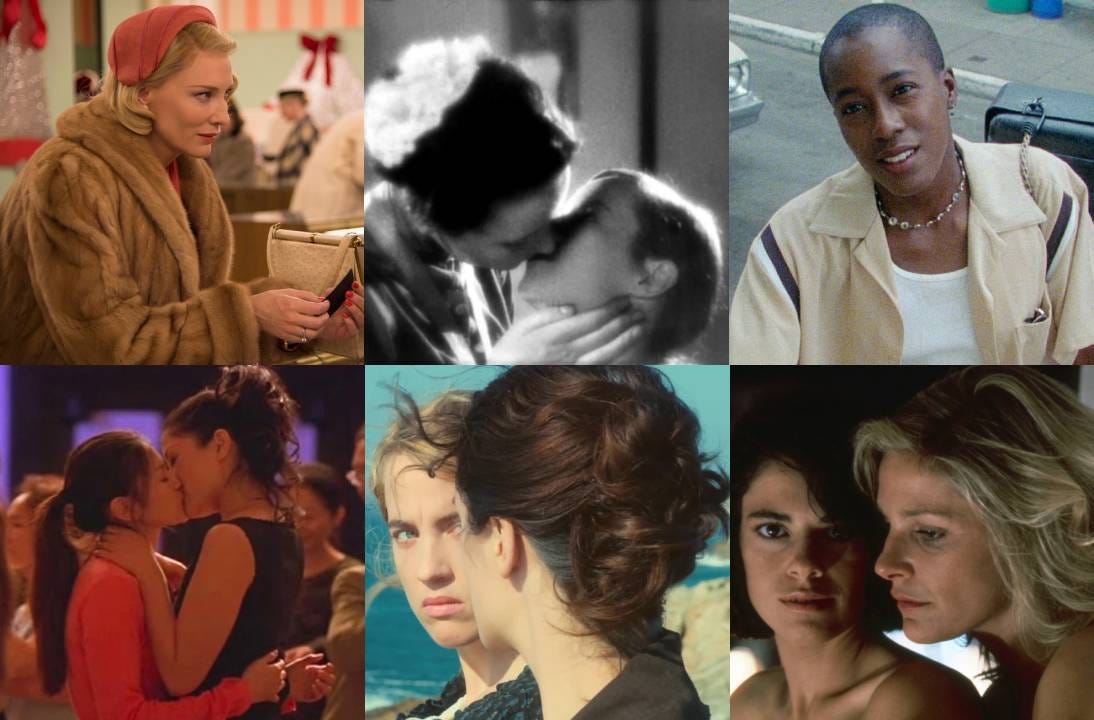
![Go Fish [Francia] [DVD]: Amazon.es: V.S. Brodie, Guinevere Turner, T. Wendy McMillan, Migdalia Melendez, Anastasia Sharp, Rose Troche, V.S. Brodie, Guinevere Turner: Películas y TV Go Fish [Francia] [DVD]: Amazon.es: V.S. Brodie, Guinevere Turner, T. Wendy McMillan, Migdalia Melendez, Anastasia Sharp, Rose Troche, V.S. Brodie, Guinevere Turner: Películas y TV](https://substackcdn.com/image/fetch/w_2000,c_limit,f_auto,q_auto:good,fl_progressive:steep/https%3A%2F%2Fsubstack-post-media.s3.amazonaws.com%2Fpublic%2Fimages%2Febcb4732-ae6f-4e69-ab42-43cbc29c142d_1000x540.jpeg)
